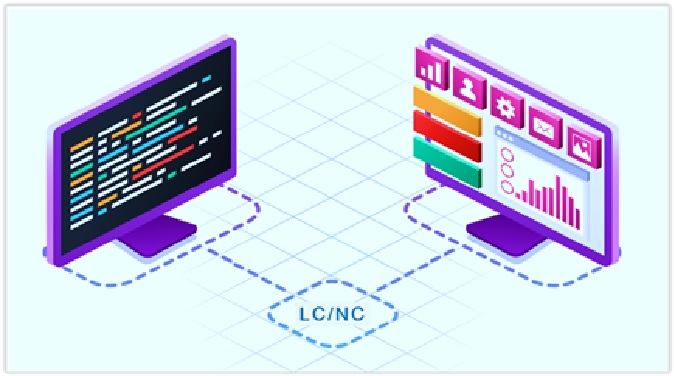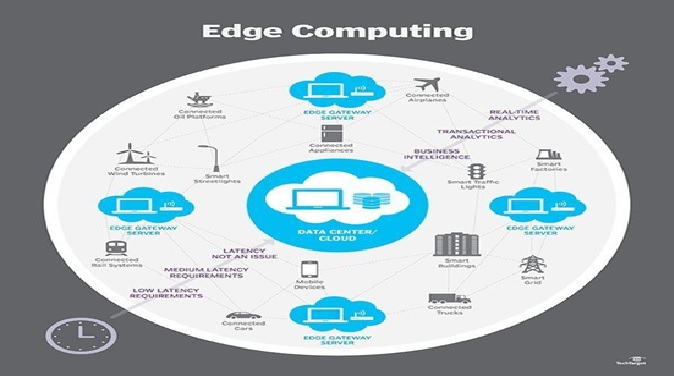Low-code and no-code cloud services
Low-code platforms for cloud development allow citizen developers to produce sophisticated cloud applications and systems. Such platforms practice a visual approach to development where the complex code clusters are represented as pre-made templates and out-of-box functionalities. Thus, instead of writing long lines of code, developers can compile the necessary elements on a low-code platform’s interface. Essentially, low code speeds up and facilitates the development process, liberating
At the same time, low-code platforms give enough space for cloud customization with unique integrations, features, and business logic. We will review the advantages of a low-code approach to cloud development in more detail further in this article.

Figure 1. Low-code and no-code cloud services
Low-code and no-code cloud services is shown in figure 1. A low-code platform is most often used by IT professionals with some coding skills to create custom applications, while no-code platforms typically allow business users without any knowledge of how coding works to address their own development needs.
Some of the low-code applications you can build with a low-code platform include:
- Customer experience apps
- Productivity apps
- Employee management apps
- Line of business apps
- Employee engagement apps
Low-code and no-code platforms allow businesses to modernize existing applications or create and launch new apps quickly. If you’re considering this approach, there are many companies that offer platforms for building web and mobile apps without extensive coding.
The biggest change since cloud-based software:
Low-code and no-code platforms are bringing about the biggest change in the IT world since Google Docs. Cloud-based software forced the rest of the IT world to sit up and listen. Traditional providers were forced to change overnight. and now the world of DevOps is being forced to listen to the new kids on the block—low-code and no-code platforms, which have the potential to make software development so easy that almost anyone can do it.
Common Low-Code/No-Code Functionality:
LC/NC software development approaches support a variety of application types. Small business transactional systems are perhaps the most common. These are applications that process business transactions — tools such as human resource management (e.g., performance appraisal), reservation management for restaurants or other experiences, order quote creation, field service management, and so forth. Large firms might have expensive packages or custom-developed programs to perform them, but small businesses can generate their own easily.
References:
- https://www.akveo.com/blog/cloud-and-low-code-trends-business-cases-tools-and-what-to-expect-in-2023
- https://powerapps.microsoft.com/en-us/low-code-no-code-development-platforms
- https://www.bmc.com/blogs/low-code-vs-no-code/
- https://hbr.org/2021/06/when-low-code-no-code-development-works-and-when-it-doesnt
Cite this article:
Gokula Nandhini K (2023), low-code and no-code cloud services, AnaTechMaz, pp.63















